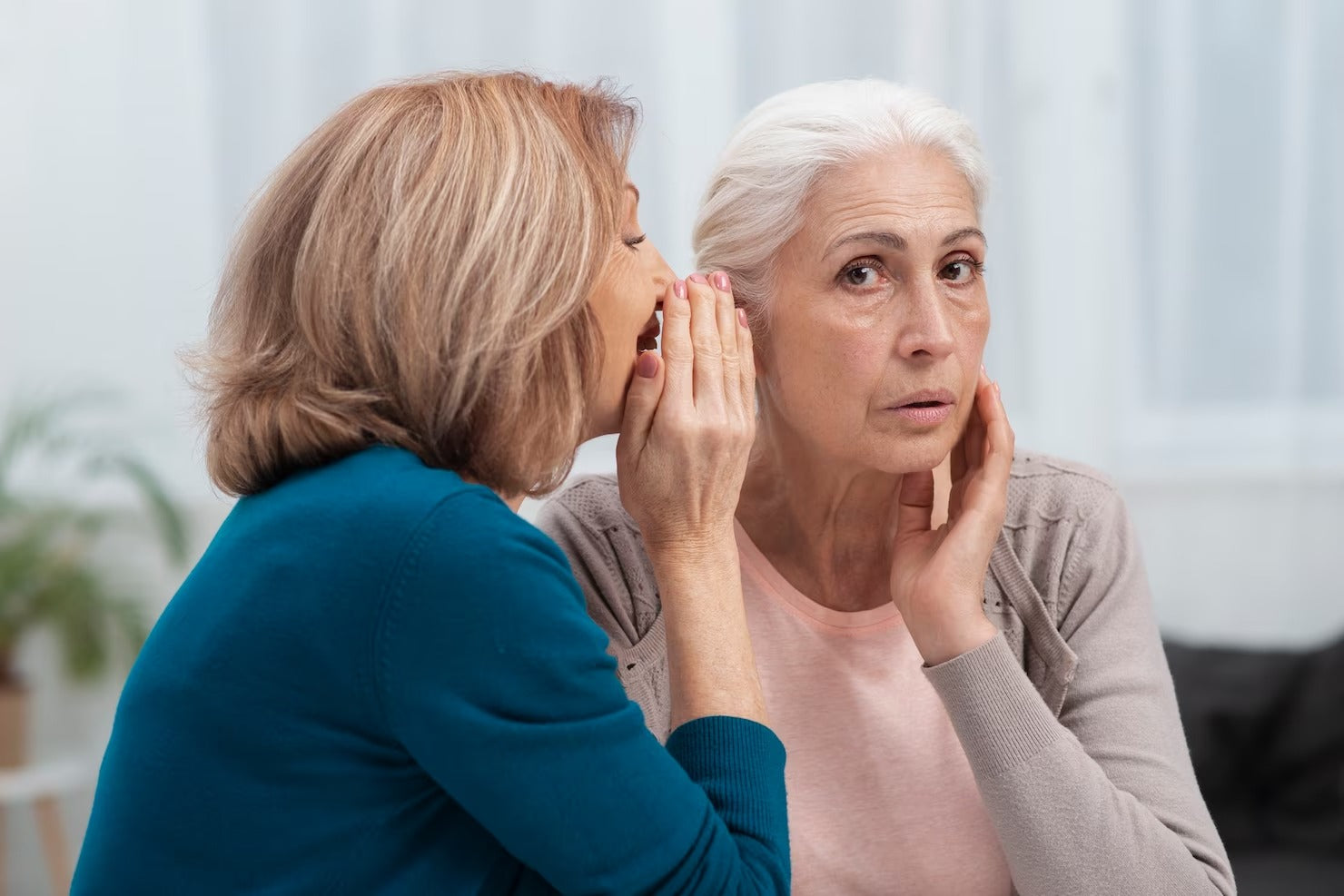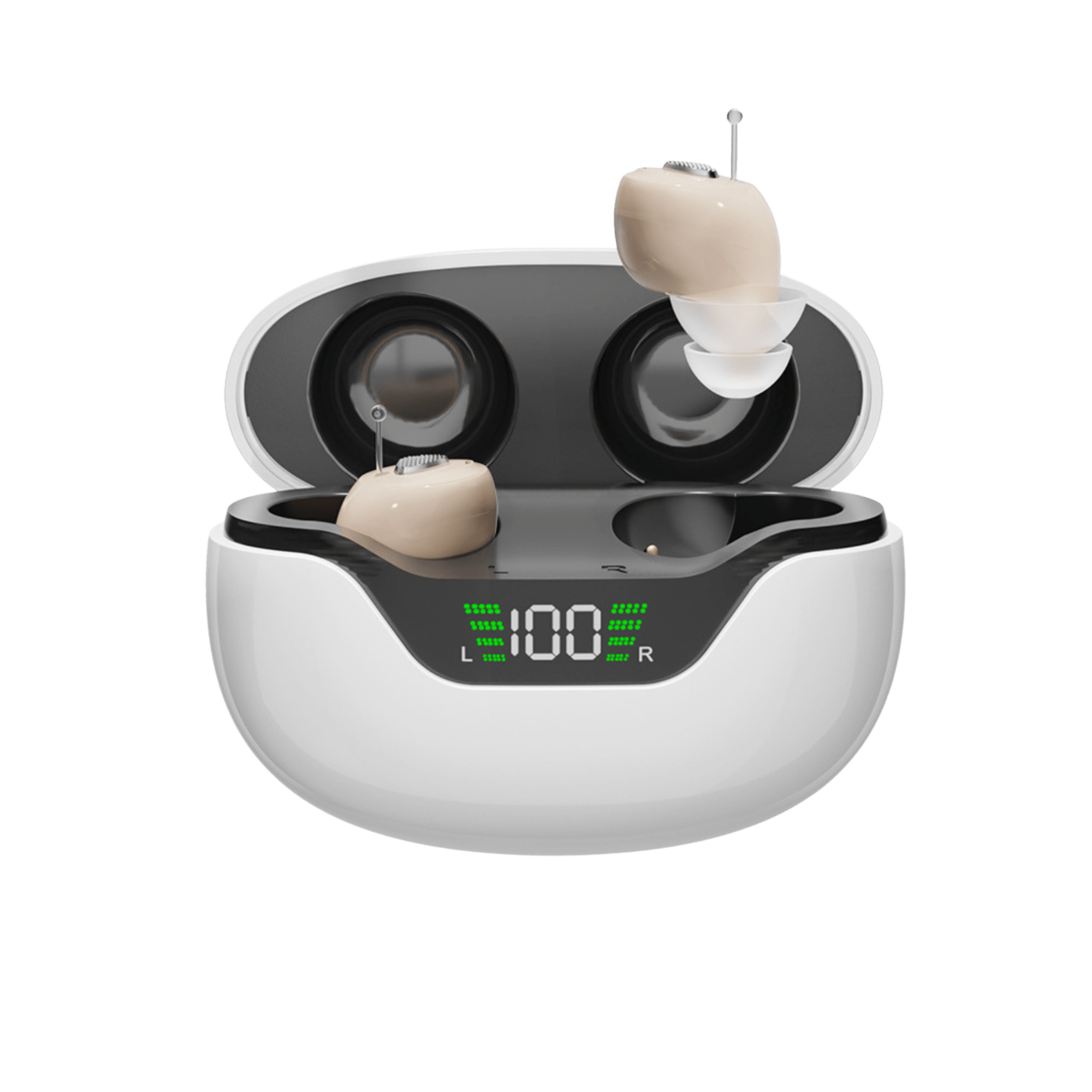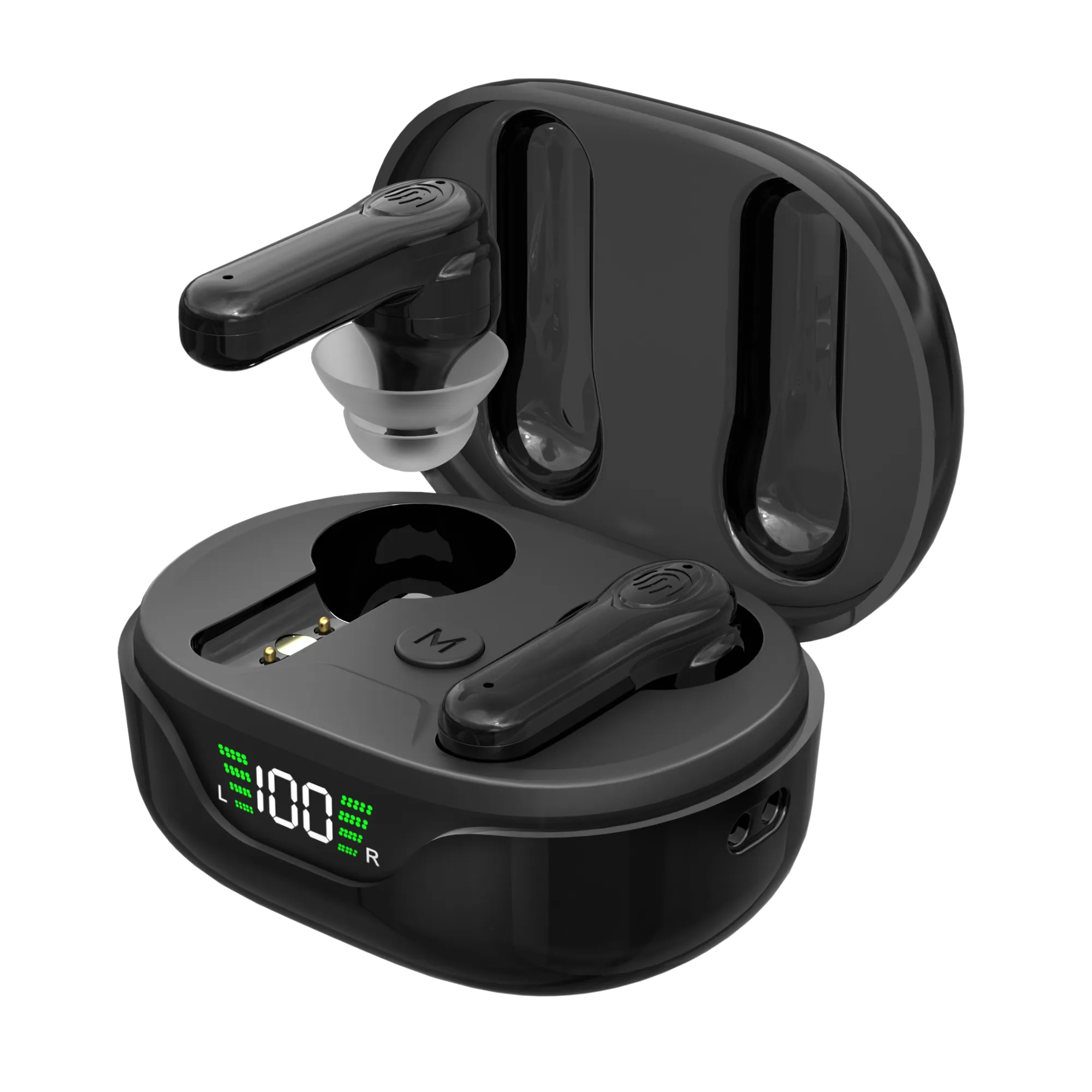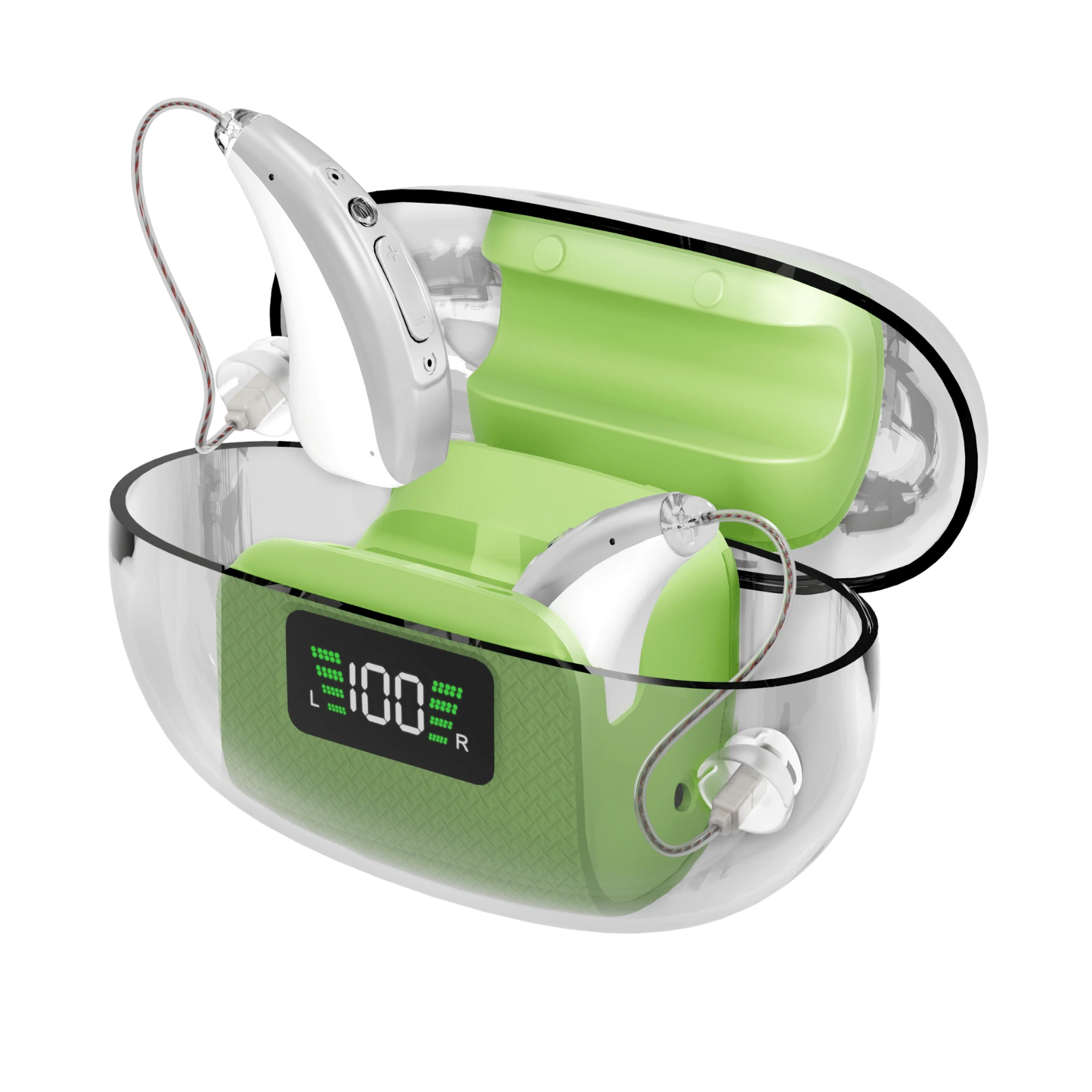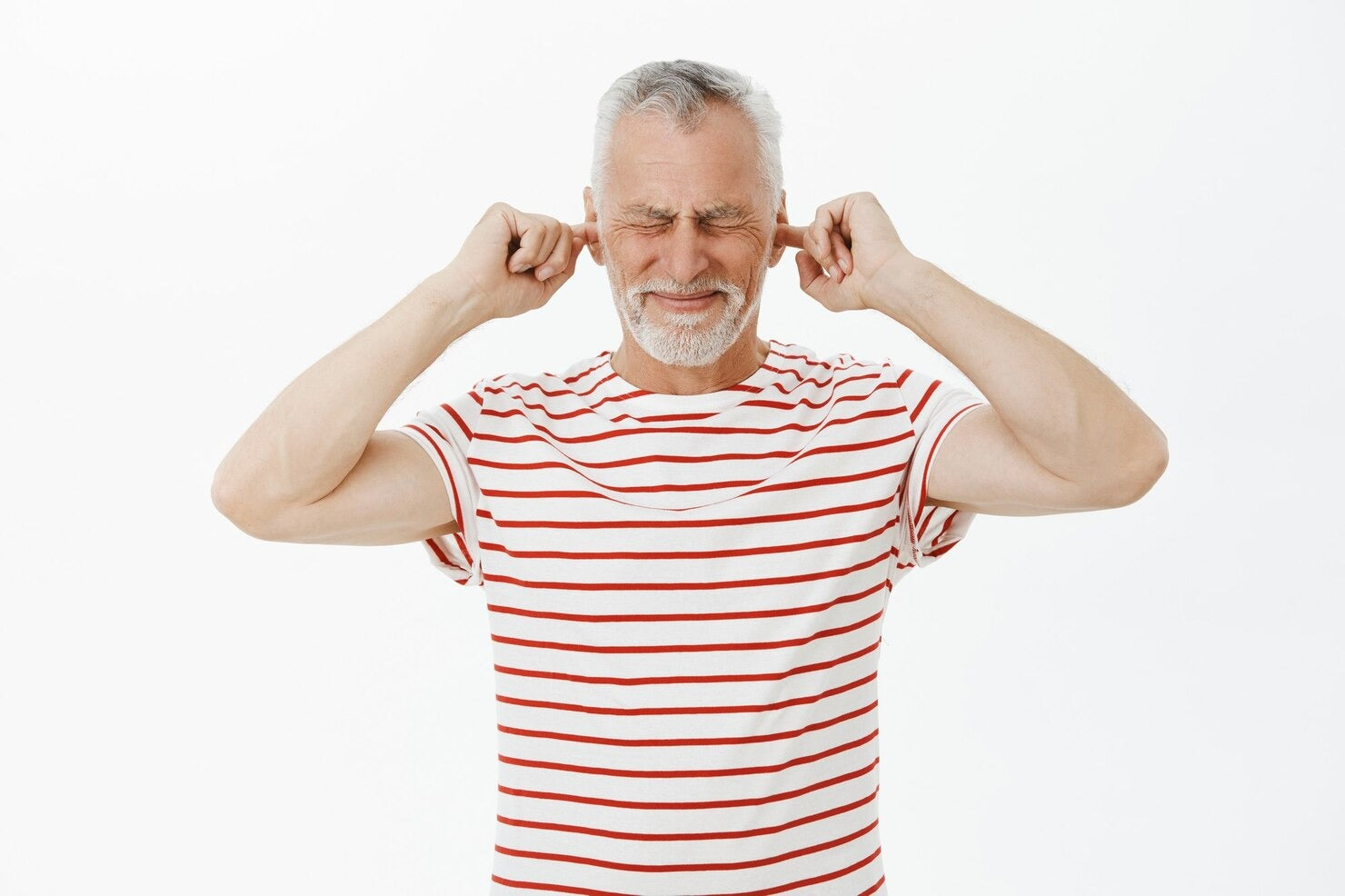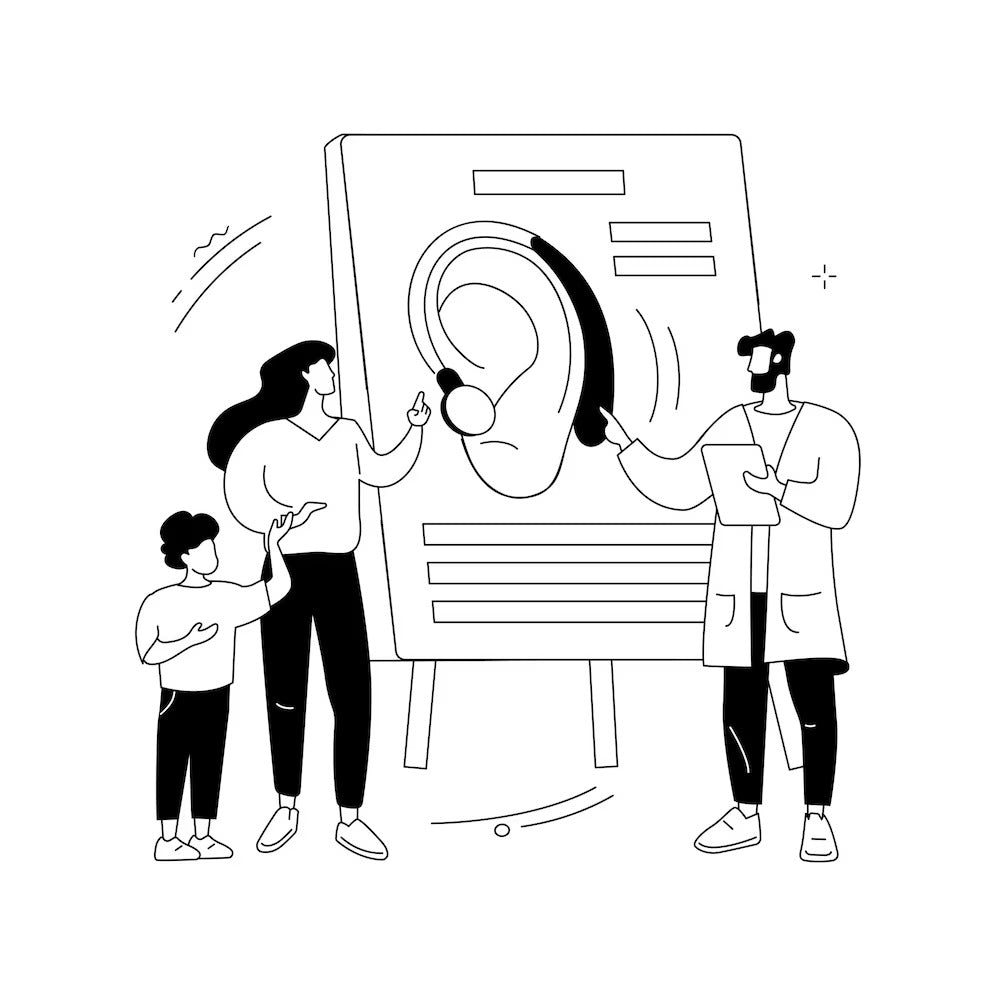Updated September 23, 2025 By the Panda Hearing Team at pandahearing.com - Experts in affordable, over-the-counter (OTC) hearing solutions, committed to supporting veterans with premium, FDA-approved devices like our Elite ($899), Advanced III ($299), Quantum ($499), and Supreme models. With over 2.7 million U.S. veterans affected by hearing loss or tinnitus, we're here to bridge gaps in care. Our products feature Bluetooth streaming, noise reduction, and long battery life (up to 26 hours), designed for moderate hearing loss without clinic visits.
Hearing loss is the most common service-connected disability among U.S. veterans, impacting over 2.7 million individuals. If you're a veteran experiencing this, investing in hearing aids can restore clarity, boost mental health, and enhance daily life. But what are the specific benefits, and how can you access them? This guide provides direct answers, backed by 2025 data from the U.S. Department of Veterans Affairs (VA), Hearing Loss Association of America (HLAA), and recent studies.
Key Statistics on Veteran Hearing Loss in 2025
Veterans face higher risks due to noise exposure from gunfire, machinery, and blasts. Here's a snapshot:
| Statistic | Details |
|---|---|
| Prevalence | Over 2.7 million veterans receive compensation or treatment for hearing issues; 1.3 million for hearing loss, 2.3 million for tinnitus. 30% of veterans report hearing loss as their top disability. |
| Demographics | 12% of active service members had hearing loss in 2023 (slight decrease from 2022). Black veterans face claim disparities. Globally, 69% of UK Royal Marine veterans have severe damage. |
| Projections | By 2050, 2.5 billion people worldwide may have hearing loss, including rising veteran cases per WHO. VA ratings for hearing loss: 0-100%, with 10% providing $165.92/month. |
These numbers highlight why early intervention is key-untreated loss links to isolation and health risks.
Direct Answer: How Do Veterans Benefit from Hearing Aids?
A: Hearing aids reduce dementia risk by up to 48%, improve mental health, enhance relationships, and support active lifestyles, per 2025 studies. Expanded: Noise-induced hearing loss affects focus and safety. Aids amplify soft sounds while compressing loud ones, using tech like Wide Dynamic Range Compression (WDRC). Benefits include:
- Cognitive Protection: 2025 RCTs show aids cut cognitive decline by 48% in high-risk veterans over three years. They lower dementia progression and mortality. For blast-exposed veterans, this maintains independence.
- Mental and Physical Health: Reduce isolation, depression, and PTSD symptoms; encourage activity. 2025 trials confirm slower decline with aids plus counseling.
- Relationships and Daily Life: Hear family, nature, and alerts clearly; combat service "signature injuries." Veterans report renewed connections.
- Economic Savings: OTC aids save $2,000-3,000 vs. clinic prices; VA provides free for qualifiers.
Panda's Quantum auto-adjusts via app, ideal for veterans avoiding appointments.
VA Hearing Aid Programs: Eligibility and How to Apply in 2025
Direct Answer: All enrolled veterans qualify for free VA audiology; aids are provided if needed, no copays. Expanded: The VA recognizes hearing loss as a top disability, offering comprehensive care. 2025 updates include virtual adjustments and expanded community care via the Veterans' ACCESS Act (H.R. 3088), adding hearing aid specialists.
- Eligibility: Service-connected loss (even 0%), 2+ years duty with diagnosis, former POWs, Purple Heart recipients, or severe impairment. No referral needed.
- Covered Services: Free exams, aids, fittings, repairs, batteries, cochlear implants, tinnitus management. Brands like Starkey, Oticon, Phonak, Widex, Signia.
- Application: Register at a VA center with DD214; schedule audiology exam. No cost if recommended. Tips: Bring ID, insurance; appeal denials via VSOs. Delays possible-use community care.
- Compensation: 0-100% ratings; 10% = $165.92/month. TRICARE covers for retirees.
Not qualified? Panda's OTC aids match VA specs (114 dB output, <2% distortion) at low cost.
Free and Discounted Programs for Veterans Beyond VA (2025)
Direct Answer: Organizations like HLAA, TruHearing, and foundations offer free/discounted aids; eligibility varies by service connection. Expanded: If VA waits are long, these help:
- HLAA Financial Assistance: Aid for service-related loss, including implants.
- TruHearing (VFW Partnership): 30-60% off; comprehensive care.
- Hearing Health Foundation: Affordable aids, insurance guidance.
- UK Veterans Hearing Foundation: Support for military damage.
- Other: ElderLife, state aid; 3M settlement ($6B) for earplug failures. Apply via websites; proof of service needed.
Real Veteran Stories: Inspiration from 2025
Direct Answer: Veterans like a Vietnam-era Marine report life-changing clarity after aids, hearing family again. Expanded: Stories highlight impact:
- A Vietnam veteran, after 50 years, got cochlear implants: "Go get tested... do whatever is necessary."
- A 95-year-old RAF vet fitted quickly by Starkey: Renewed daily life.
- X posts: Veterans share VA delays but praise aids for tinnitus relief; one heard a fire truck siren post-aids. Another: "Aids helped hear family after PTSD/TBI."
- Challenges: Denials for non-combat loss, but persistence pays.
FAQs: Common Questions on Veterans and Hearing Aids
Q: Do I need combat experience for VA aids? A: No-any service-connected loss qualifies, even training-related.
Q: What if VA denies my claim? A: Appeal with VSO help; 81% of incident diagnoses get aids.
Q: Are OTC aids like Panda compatible with VA? A: Yes-for mild-moderate loss; self-adjustable, no prescription.
Q: How do aids help tinnitus? A: Mask ringing; VA protocols manage it.
Q: What's new in 2025? A: Virtual fittings, ACCESS Act expansion.
Hearing aids are an investment in your future-reducing risks, restoring joy. If VA isn't immediate, pandahearing.com offers certified (FCC, ROHS, CE) solutions with 30-day guarantees, free shipping. Shop Elite for adaptive mics or Quantum for self-tests. Veterans: You've earned clear hearing-contact us or VA today!
